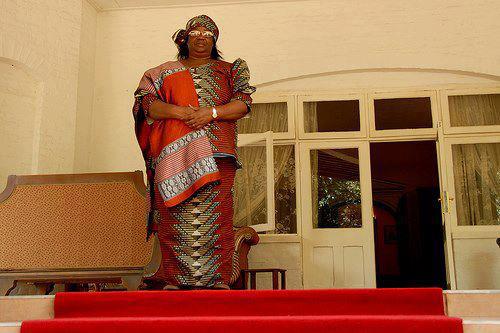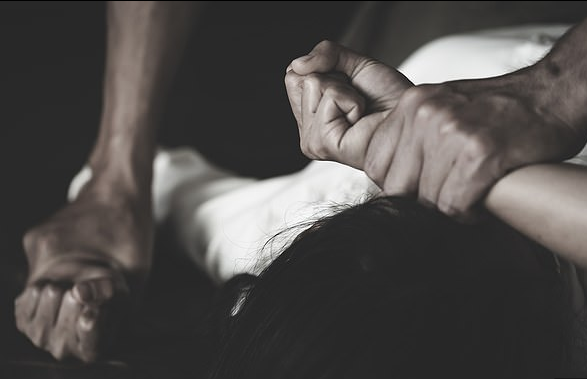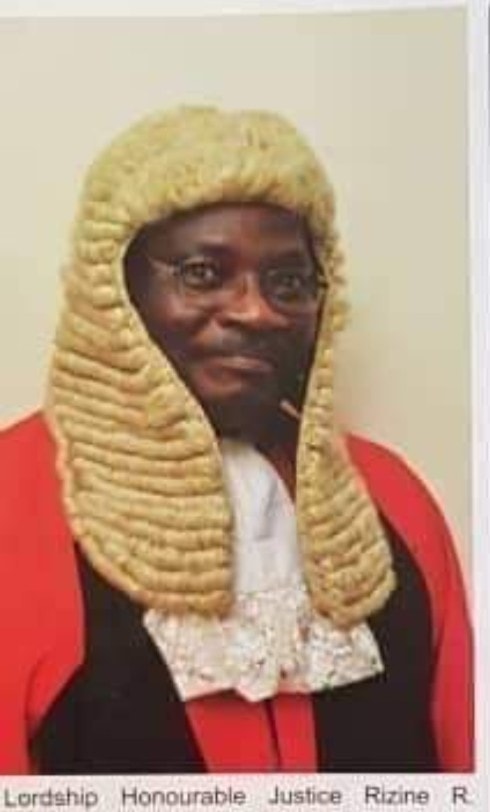Statement by her Excellency Dr Joyce Banda, Former President of the Republic of Malawi and Founder of Joyce Banda Foundation International (JBFI) during the Netherlands Africa Day on the Theme “Democracy, Good Governance and Human Rights in Africa” at amsterdam, the Netherlands on Saturday 1st November, 2014.
It is a great honour for me to be here this morning to deliver a keynote address on the theme “Democracy, Good Governance and Human Rights in Africa” on the occasion of The Netherlands Africa Day 2014 which has been organised by Foundation Max van der Stoel here in Amsterdam.
Firstly, I wish to thank the Netherlands Government and the Foundation Max van der Stoel for supporting this year’s program to focus on democracy, good governance and human rights in Africa.
I also wish to thank, the Netherlands Institute for Multiparty Democracy (NIMD), for inviting me to come here and deliver a keynote address and for the work they are doing in Malawi together with the Centre for Multiparty Democracy. Their work in Malawi has contributed so much to peace building and deepening of intra and inter party democracy. I am very happy with the very able team of management that they have in Malawi.
How pleased I am as a human rights activist to be among human rights champions. I feel very privileged to share a podium with this great son of Africa, Mr. Mo Ibrahim. I am proud as someone who has watched him from a distance advance the cause of democracy in Africa; as someone who has become the face of democracy in Africa.
Today’s topic features good governance, democracy and human rights. Good governance and democracy are mutually reinforcing and engendering the protection of human rights. There is a stubborn link between democracy, good governance and human rights. We cannot meaningfully achieve one without the others. Democracy lays foundation for people to realign themselves for sustainable development.
Good governance seeks optimal and efficient use of systems and resources whereas human rights guarantee fairness, equity and freedoms. When good governance and observance of human rights are respected, societies then enforce democracy.
Distinguished ladies and gentlemen
The theme of democracy, good governance and human rights is very central to me. The need to renew our commitment to the deepening of good governance, human rights and democracy in Africa is very urgent. Over two decades have now elapsed since the continent witnessed the fundamental democratic breakthroughs following the end of the cold war. Thus, it is time to take stock.
While recent studies, particularly those done by the Afro-barometer- have shown that a majority of Africans at 71 percent remain committed to democracy, at the same time indicate that 43 percent of the people are not particularly satisfied with the democracy they are getting.
We therefore need to critically reflect on and address the challenges that we face in order to safeguard our hard won democracy. The theme of this year’s Netherlands Africa Day gives us that chance.
Indeed, the biggest threats to democracy, good governance and human rights are poverty, lack of opportunity and lack of freedoms. When we allow children continuing to suffer from malnutrition; or to sit and learn under trees rather than proper classrooms; when we allow mothers to die while giving birth because the nearest health centre is far away; or that thousands of our people should die of diseases that we have answers for. Yes, It is when we allow our youth who represent the future of our world struggle to find sustaining opportunities to realize their potential; or that farmers and workers continue to toil to make the best of what they have but cannot get the fruits of their labour due to lack of modernization, a supportive policy environment and access to markets; and that they continue to suffer from global tariffs and taxes.
It is when these frustrations are in place that conflict takes root and thereby democracy, good governance and human rights come under threat.
Distinguished ladies and gentlemen
Many commentators have noted that Africa has moved from being a hopeless continent to a hopeful continent. There is every reason to be optimist about the future of Africa. The recent resource boom in form of oil, minerals, gas and other resources have put Africa on the course to prosperity. Africa has experienced significant political, economic and financial reforms which have added to the positive outlook for the continent. Furthermore, the rise of women into senior decision making positions in various sectors in Africa has surely contributed to the significant growth that we are witnessing on the African Continent today. Africa is truly rising. Over the past decade six of the world’s ten fastest-growing countries were African.
Distinguished ladies and gentlemen
My observation is that in most of the countries that are registering such unprecedented growth, there is clear evidence that democracy is also maturing.
Fortunately, leading on the list are also countries that Mr. Mo Ibrahim has also recognised. I have in mind, Mozambique and Botswana. I have just returned from leading an AU Elections Observer Team in Botswana and felt to be very proud to be an African because of the way conducted.
Having seen what I witnessed in Botswana, I am of the view that democracy is the only system of government that recognises the sovereignty of the people. Although the actual institutional ramifications may differ, the basic values and principles of democracy, which include free and fair elections, popular participation, political and civil rights, accountability, transparency, among other others are universal.
It is important to note that human rights are intrinsic to human beings therefore we need to put socio-economic rights at the forefront of our development agenda. Is it not worrying that, after more than 50 years of independence in most African countries, our economies are still chronically dependent on the West. Today some sectors of society remain marginalised and that it is time that due attention is given to such groups.
For me my mission in life is to assist women and youth gain socio economic empowerment through business and education. Indeed, women and youth are the face of democracy, good governance and human rights.
Interestingly, the interconnectedness of good governance, human rights and democracy ensures that there can never be people centered, inclusive and sustainable development without a commitment to good governance, democracy, human rights and political will. Therefore as leaders we must learn to listen to the voices of the people.
Evidence has shown that the people of Africa do not regard democracy, human rights and good governance as a luxury.
They have demanded these in demonstrations, petitions and in many other ways and, today, they are prepared to sacrifice their lives for the same. However, it is senseless for any leader not to be responsive to the aspirations of her or his people. The situation of Burkina Faso stands as example today.
Distinguished ladies and gentlemen
Furthermore, poverty compromises the dignity of human beings. I have argued in many places that we need to assist our people to bring income into their households. Because when families have decent incomes, they are able to send their children to school. They can decide on the size of their families. They can negotiate issues that affect them.
Another threat is theft and corruption which remains a fundamental challenge to democracy and development.
Therefore, if we have to deepen democracy, enforce good governance and allow citizens exercise their rights and enjoy their freedoms, fighting theft and corruption is key.
This calls for servant leadership that does not put personal and political interests at the centre but rather seeks to serve the people.
It calls for leadership that is prepared to make painful but necessary sacrifices.
I wish to acknowledge of emergency of a good crop of African leaders that are fighting theft and corruption. As I have indicated earlier, most of these are leading the fastest growing economies.
For example, in my case in Malawi, when I was State President, after the European Union Ambassador Alexander Baum alerted me about how the Integrated Financial Management System (IFMIS) was being abused and the extent to which Government money was being stolen, I immediately announced to the nation on 7th September 2013 that I was going to fight corruption. I consulted widely and I was told by many that it was going to be hard, that I was better off covering it up since this has been happening since 2005 when IFMIS was installed.
For me, the choice was simple: by covering up I would deny my people a better life. But also starting the fight against theft and corruption was putting my political career on line. I decided to put the people that I served first. I constituted an investigation team headed by Deputy Inspector General of Police, an expert in criminal investigations. I also established a Ministerial Committee and a technical committee to draw up a work plan on how to build human resource capacity in investigations and prosecutions, auditing including forensic audit, accounting and had taken administrative measures and legal and institutional reforms to foster good economic and financial governance.
I have been informed that there are not many Presidents who institute a forensic audit into their own government and during their own term. Indeed, we made 68 arrests, froze 30 bank accounts, replaced the IFMIS and brought technical expert from outside who came and helped us institute tight controls. Prosecutions started then and are continuing till now.
I wish to thank the British Government for supporting my administration to finance the forensic audit.
I also wish to applaud my successor President Peter Mutharika for deciding to continue with this program to fight theft and corruption in the country.
I also appreciate the recent announcement by the German Government to fund the forensic audit covering the period from 2009 to 2012, which is, covering three years before I came into office. This follows revelations that more resources were plundered in the three years prior to my taking office. The British Government has further asked that forensic audit should further be conducted from 2005 when IFMIS was installed.
I have learned through this process that to consolidate democratic systems, not only in Africa but all over the world, we need to build strong institutional and legal frameworks. Without strong institutional and legal frameworks, our efforts to build democratic societies will go into a vicious cycle of underdevelopment.
I have also learned that consolidation of democracy also suffers from low levels of education. In societies where educational levels are very low, citizens cannot effectively demand accountability from their governments and elected representatives. Also, low education levels pause challenges for political settlement. Therefore, if we need to consolidate democratic societies, deepen good governance and enforce observance of human rights, we need to pay special attention to education, especially for the girl child.
Studies have shown that where women and girls are given equal opportunities to participate side by side with their male counterparts, those societies have developed faster and in a more inclusive way. Countries like Rwanda, Sweden and Brazil are clear case studies.
Above all this, there is need for political will and commitment at leadership level to make a difference; to ensure that our people do not beg for democratic systems and processes; that our people take good governance as part of livelihood and indeed that they enjoy their freedoms and exercises their rights.
We do not need to allow people to die for us to concede and allow democracy and good governance and human rights get accepted. Equally, the international community needs to demonstrate the same political will and commitment. In many cases, we see a lot of double standards in the application of these values when it comes to Africa.
Distinguished ladies and gentlemen
Allow me to cite few examples of my achievements in the two years I was in power. These success stories are mostly attributed to the fact that I was committed to democratic governance and the observance of human rights. I took a rights based approach to development.
1. Devaluation
I had to make a painful but necessary decision to devalue the currency by almost 40 percent in order to save the economy from collapse, knowing very well the consequences of such decision on the popularity of my leadership.
However, I was convinced that it was the best decision I could do for my country and my people.
2. Press Freedom
My government pursued an open and inclusive society. All those who were refused radio and television licences merely on political grounds were issued. New media operations were free to start up as my Government liberalised the issuance of radio and television licenses based on the quality of their application and not on political considerations. Media houses were able to operate freely without harassment, restrictions and violence against journalists.
Furthermore, my Government repealed most of the oppressive laws that impinged on peoples’ freedoms and rights.
These included Section 46 of the Penal Code which empowered the Minister of Information to close media houses if he or she saw fit.
It will be noted that these changes contributed significantly to the overall growth and in making Malawi to achieve the biggest leap in the 2013 World Press Index on press freedom. Malawi moved from position 146 in 2012 to position 75 in 2013 in the World Press Index.
3. Tripartite Elections
My Government instituted legal reforms for the holding of local government elections as I believed that without devolution of power and services, we could not meaningfully develop our people. For people to meaningfully participate in development, they need to own the process and participate in the governance of things that affect them. Indeed for the first time in Malawi, in 2014 we had tripartite elections leading to the establishment of Local Governments. Malawi had operated without Local Councils for more than 18 years.
4. Economic Recovery Plan
As soon as I took over power, I developed Economic Recovery Plan which sought to spearhead the economic recovery process of the country. We had prioritized five sectors: agriculture, mining, tourism, energy and infrastructure development. Each sector had three priority projects which were designed to spur growth and a turnaround of the economy. The Plan also provided for social protection programs that cushioned the poor and disadvantaged from the adverse effects of the reforms.
(Achievements)
Distinguished ladies and gentlemen
Here, the point needs to be made that there are no quick fixes in our efforts to consolidate democracy, entrench the culture of respect for human rights and the values of good governance.
I wish to emphasise that the resource boom in Africa should not come at the expense of human rights, democracy and good governance. I want to call upon the developed world that the efforts being put in pursuing economic interests in Africa should be marched with the efforts to support the advancement of human rights, democracy and good governance.
Indeed, there is need for smart partnerships between Africa and her development partners in the advancement for good governance, democracy and human rights where we need to pay special attention strengthening legal and institutional frameworks, education and fight against poverty.
Having served as a Head of State, I am critically aware that in order to achieve democracy, good governance and human rights, leadership plays an important role. Therefore, we need to encourage initiatives that strengthen the role of political parties.
This is not only because the international community and governments tend to overlook these institutions, but also, and more importantly, because of the painful fact that political parties are central in today’s representative democracy.
Unfortunately, women and youth are not participating fully and equitably.
In this regard, I wish to acknowledge the pace setting role that the Netherlands is playing in recognising and strengthening the role of political parties through organisations such as the Netherlands Institute for Multiparty Democracy. I hope we will continue to partner with Malawi to provide support in areas where we desperately need support, for example, electoral reforms, young politicians’ development and gender mainstreaming in politics.
We need to demonstrate that since democracy means that we need to include the marginalised and the voiceless, I am of the view that there is need for empowerment of youth and women. If we do not take a holistic approach in empowering women, we will have failed our generation. If I may ask, where did the other half came from?
I thank you for your attention.





No comments! Be the first commenter?